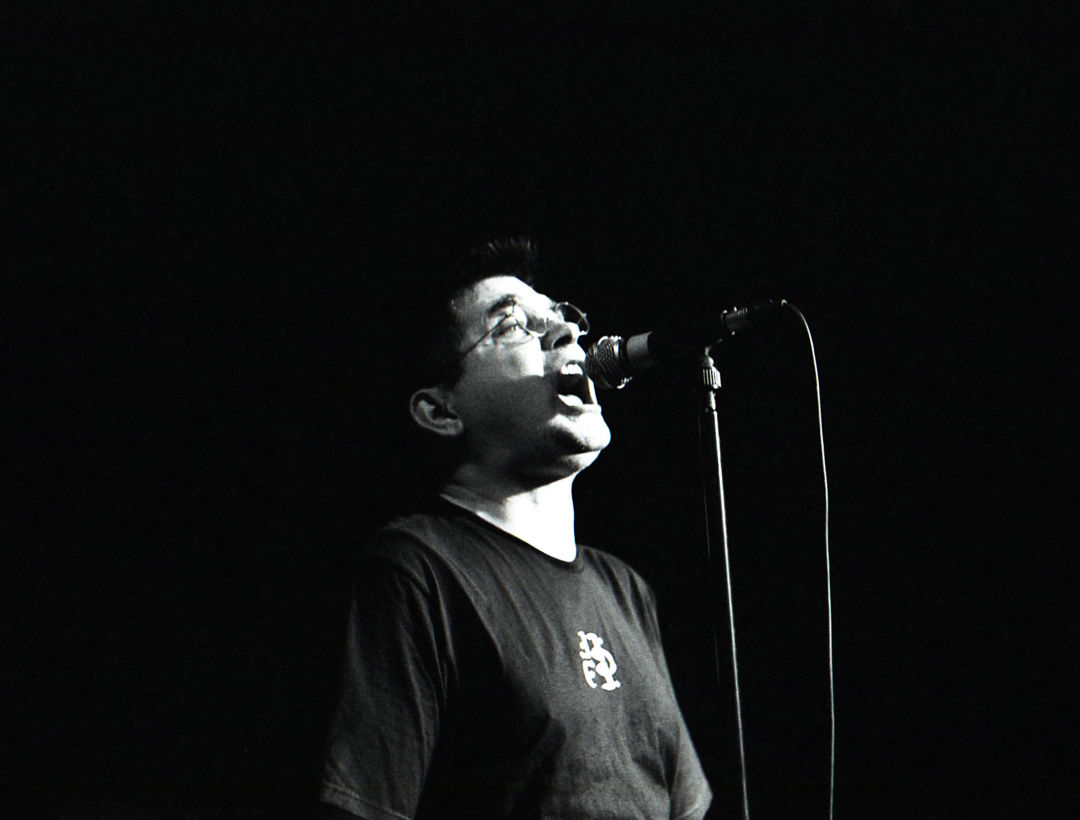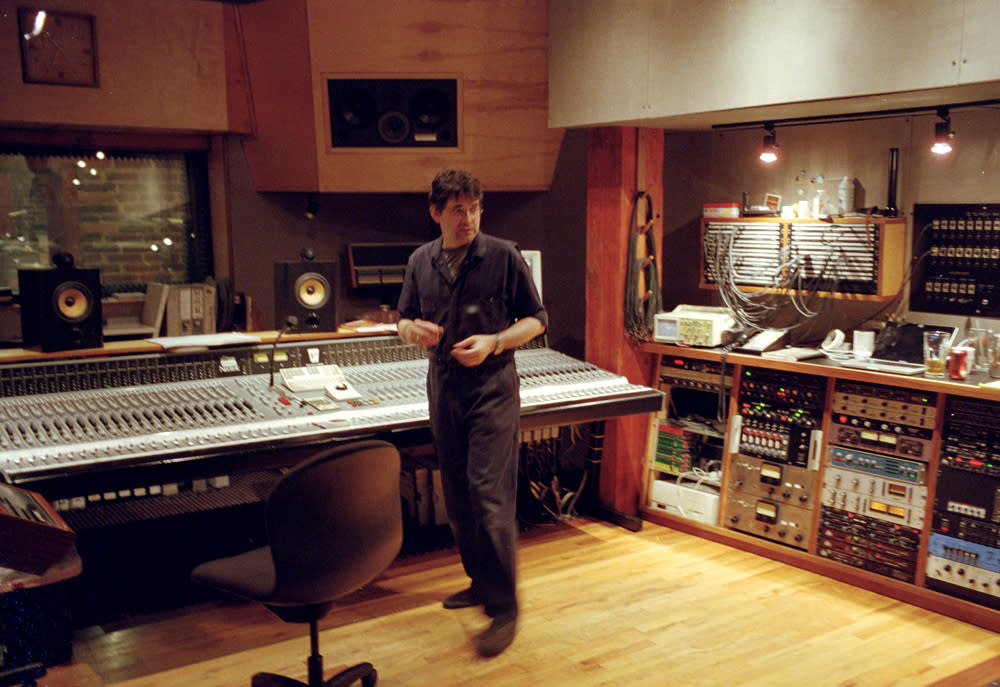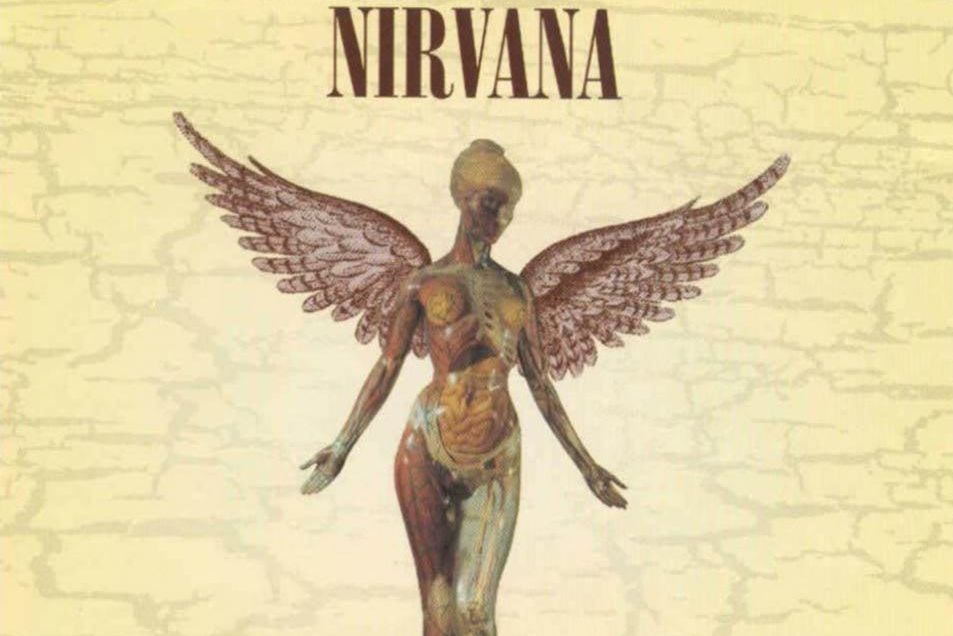Remembering Steve Albini, Who Recorded Nirvana's Final Album

By the early ’90s, the adoption of the CD had set in motion the loudness wars: the race to maximize amplitude of rock recordings. The practice resulted in tracks that were a compacted mush with little dynamic range. A fatiguing sound that became the hallmark of major label studio releases.
Enter Steve Albini, the musician, sharply opinionated recording engineer—he loathed the term "producer"—and musical iconoclast who died this week at the age of 61. Albini hated the major labels, finding their business practices immoral. But he especially hated what they were doing to rock music.
Albini thought rock and roll should be recorded such that it sounded like rock and roll. Drums front and center, dynamic guitars, warts and all, and the sound of the room as an instrument unto itself. He began recording bands in the mid-’80s after getting his start making an EP for his own band, Big Black. He recorded albums for Urge Overkill and Slint, but it was the natural, room-inclusive sound of the Pixies' Surfer Rosa that put him on the map.
After that, the Chicago-based Albini was in demand, and in 1993 Kurt Cobain asked him to record Nirvana's In Utero. Albini, who was notoriously brutal with his musical criticisms, was not impressed by Seattle's top musical export, once describing them as "R.E.M. with a fuzzbox." But he also viewed them as victims of the major label syndicate he despised, and after discussions with Cobain he felt they were both interested in making the same kind of record.
In spite of his disdain, Albini was not above taking money from the majors—Big High Building companies, as he called them—famously price-gouging the corporate overlords while recording independent bands for pennies on the dollar. He and Nirvana went to great lengths to prevent interference from Nirvana's label, DGC, recording at the secluded Pachyderm Studios in Minnesota. The album was recorded in six days, and the label hated it. Fearing that the "harsh" sound would get no airplay, DGC wanted a do-over with a different producer. Much bickering ensued, and Albini refused to hand over the tapes, as there had been an agreement that no one else would alter his recordings. But after entreaties by band member Krist Novoselic, Albini relented and DGC had the album mastered in a way that brought it closer to the label's desired sound, leaving Albini displeased with the final product.
Despite the album's tortured production, In Utero was critically acclaimed, went multiplatinum, and gave us a more raw, punk version of Nirvana we remembered from the days before Nevermind. It is certainly Albini's most famous production, but the experience only cemented his loathing of the major labels and led to him getting less work from the Big High Building companies.
In 2013, Albini returned to In Utero with the blessing of surviving Nirvana members Novoselic and Dave Grohl, and remixed the album in a way that reflected his vision.
Nirvana was not, however, the end of Albini or his imprint on Seattle music. Silkworm, a lesser-known act that called Seattle home for most of the ’90s, recorded one EP and eight albums with Albini. An independent band with a prodigious output and incessant touring schedule, Silkworm received much critical praise and little commercial success. Add to that a sound tailor-made for Albini's recording style, it's no surprise they would become such frequent collaborators. (Incidentally, two of Silkworm's members attended the same high school as Albini in Missoula, Montana, albeit nearly a decade later.)
It's not uncommon to point to a record engineered by Albini and proclaim it the band's best; the aforementioned Surfer Rosa, Jawbreaker's 24 Hour Revenge Therapy come to mind, but the decade-long symbiosis between Albini and Silkworm resulted in albums that epitomize Albini's sound. Beginning with the 1993 EP "His Absence Is a Blessing" and ending with It'll Be Cool in 2004, Albini perfectly captured Michael Dahlquist's ferocious drums, the disintegrating tones of Andy Cohen's cacophonous guitar solos, the breadth of Joel Phelps's quiet to wailing caterwauls, and Tim Midgett's crisp, pick-plucked bass.

Image: Jim Merithew/Flickr CC
Other Seattle-adjacent artists also had the good fortune to record with Albini. Capitol Hill sludge metal band Burning Witch recorded an EP and the 1996 album Towers with Albini, 2003 saw X-Patriot from Bellingham's Federation X, and in 2019 he laid down two albums for Sunn O))), Life Metal and Pyroclasts.
Albini was born on July 22, 1962, in Pasadena, California. After frequent moves in his childhood, the family settled in Missoula. Albini graduated from Hellgate High School in 1980 and moved to Evanston, Illinois, to attend Northwestern University, earning a degree in journalism. He worked as a photo retoucher until 1987 when he quit to become a full-time recording engineer, eventually moving his studio out of his house and opening Electrical Audio in 1995.
Over his career he would record the obscure (Six Finger Satellite), the successful (Nirvana), and the perplexing (Cheap Trick). He would continue to perform, eventually forming the abrasive noise-rock trio Shellac; to work as a critic, savaging even his own friends' bands; and to evolve, taking ownership of past offensive and misogynist commentary and stating he was "wrong."
In addition to being a musician and recording engineer, he was also a writer, competitive poker player, and avid baseball fan. Albini died of a heart attack on May 7, 2024, in Chicago.



